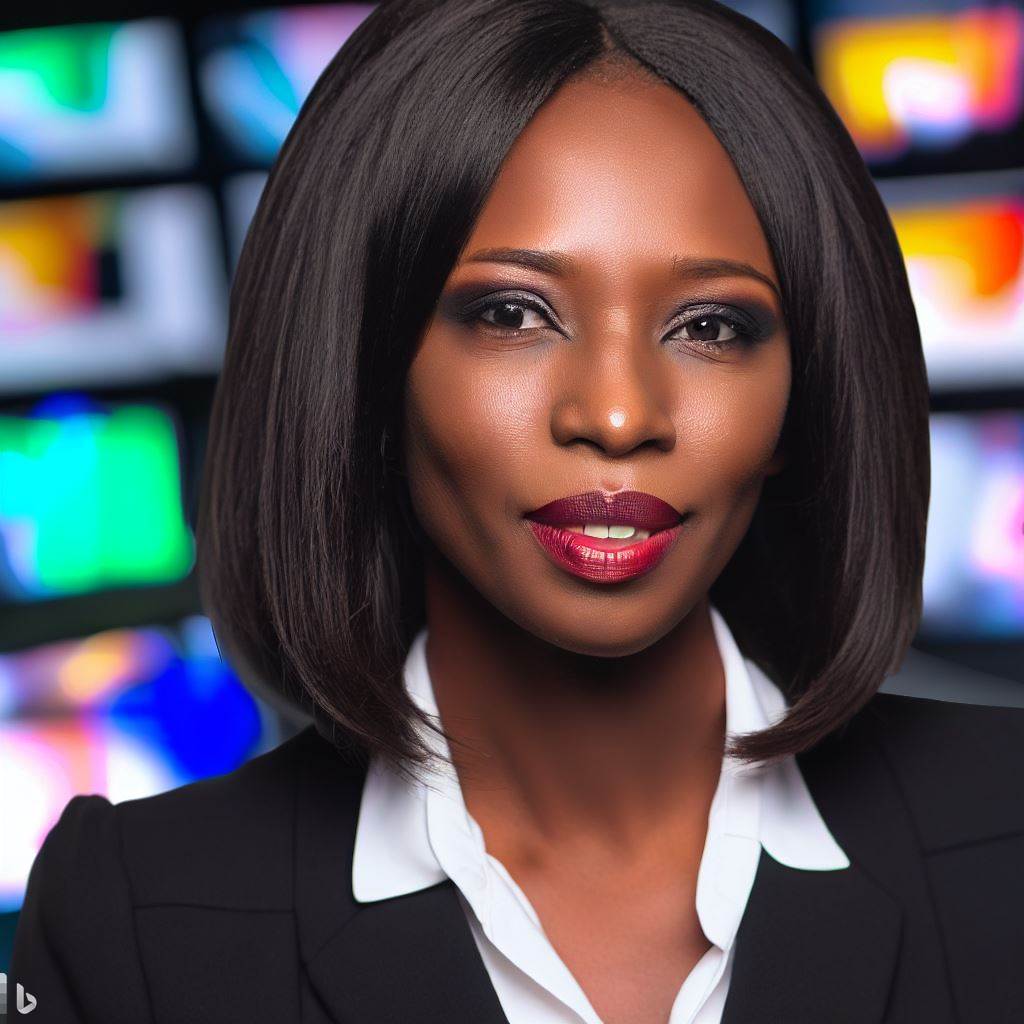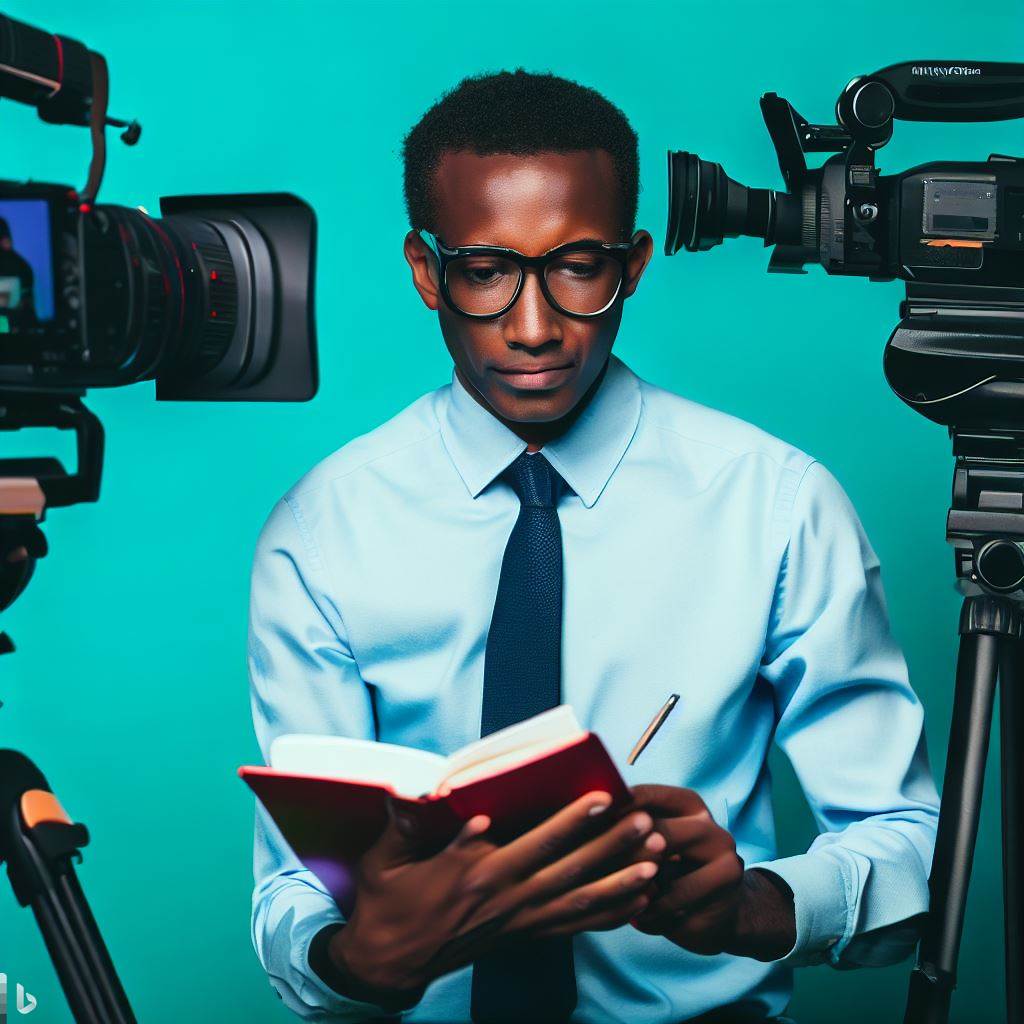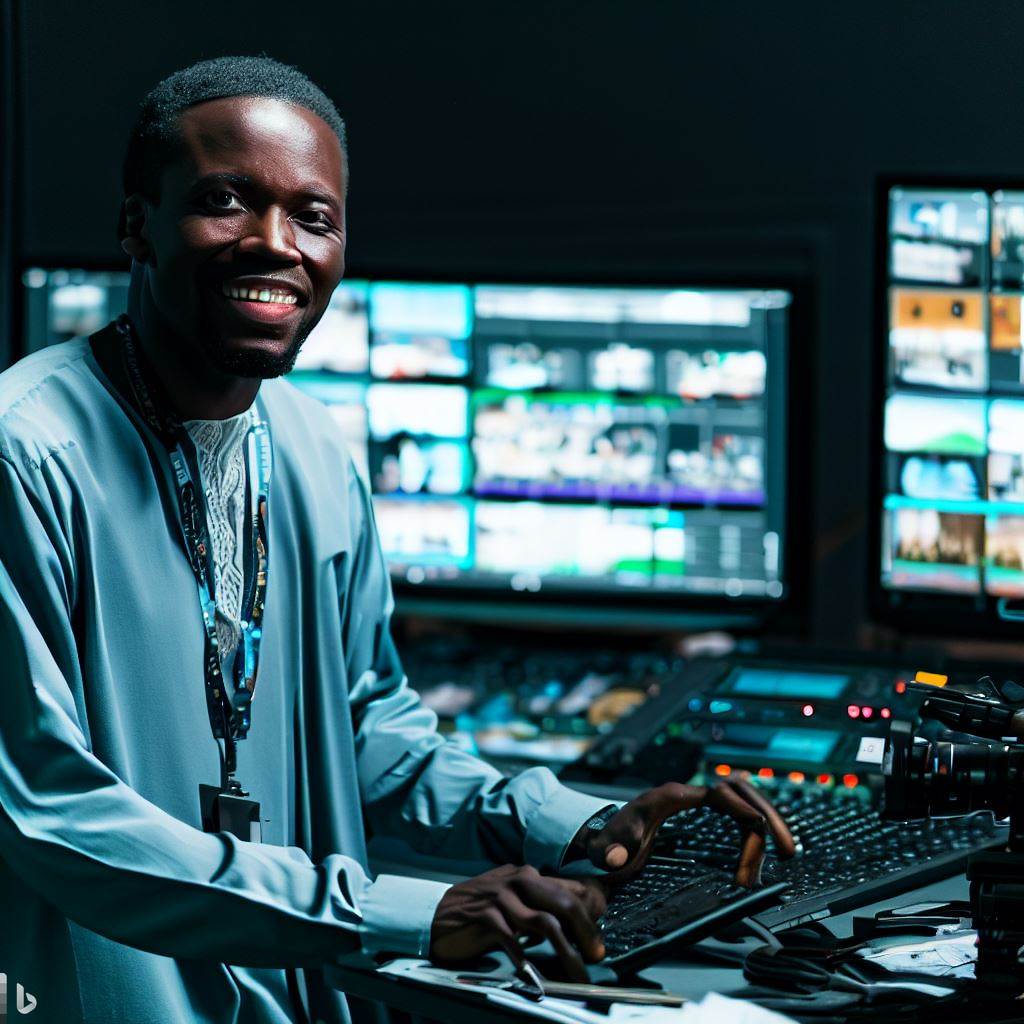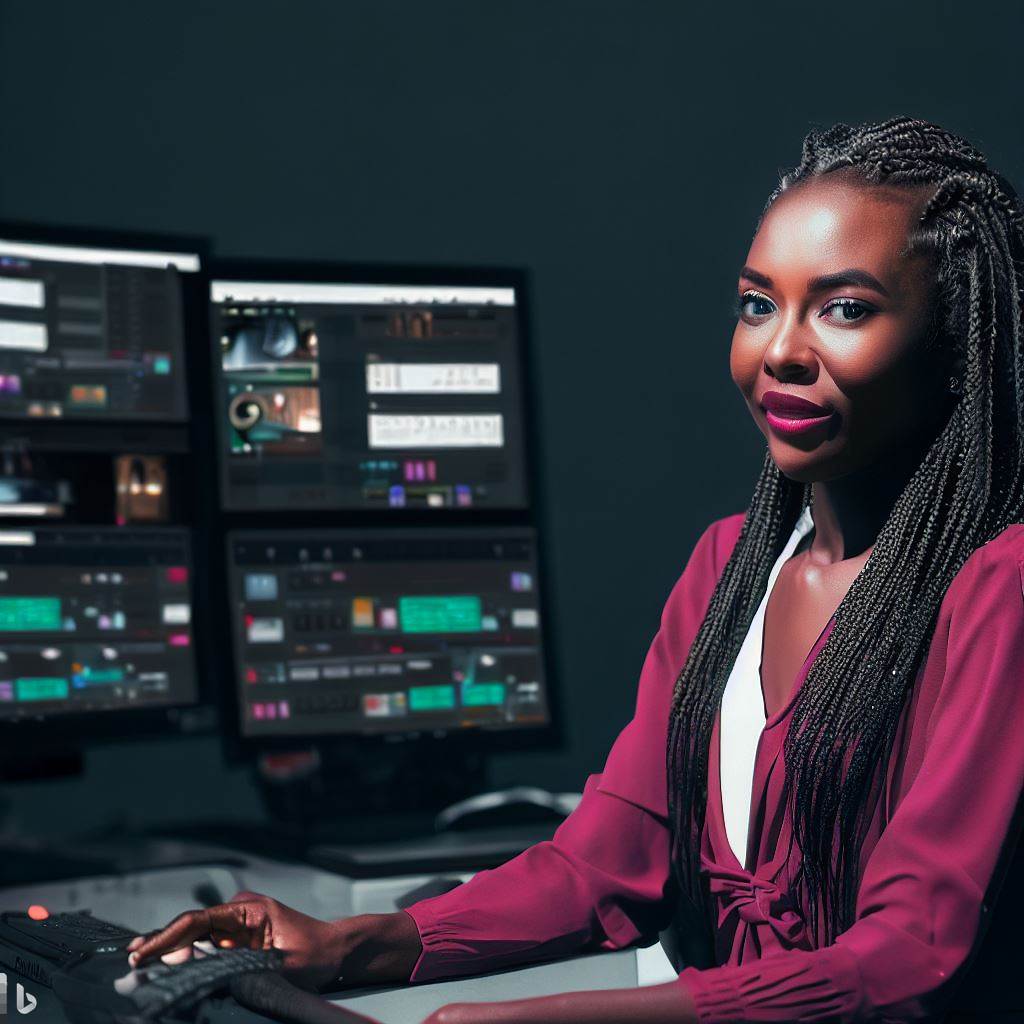Introduction
TV editors are the unsung heroes behind the scenes of Nigeria’s vibrant media landscape.
Their influence on news content, storytelling, and public discourse cannot be overstated.
To understand their journey to the top, we must first explore their educational foundations.
This blog post offers aspiring journalists, media enthusiasts, and those curious about Nigerian television editing success the educational path.
We will delve into the academic and professional experiences that have propelled these editors to the forefront of their field.
In a nation as diverse and dynamic as Nigeria, TV editors must possess a broad skill set and a deep understanding of societal issues.
Their educational backgrounds are a key factor in equipping them with the tools necessary to navigate the ever-evolving media landscape.
As we embark on this exploration, we’ll uncover the educational choices and career trajectories of top TV editors in Nigeria.
Join us on this informative journey as we decode the academic prowess that shapes the narratives seen on Nigerian television screens.
Overview of TV editing in Nigeria
Definition and role of a TV editor
A TV editor is a professional responsible for assembling, arranging, and modifying audio and video footage to create a polished final product for television.
They work closely with producers, directors, and other members of the production team to bring the vision of a TV show to life.
A TV editor combines shots, sequences, orders scenes, and selects the best takes.
They also add visual effects, transitions, and graphics to enhance the overall quality of the program.
Additionally, TV editors are in charge of audio editing, ensuring that the sound matches the visuals and creating a seamless viewing experience.
Importance of TV editing in the production process
TV editing is a crucial aspect of the production process in Nigeria, as it plays a significant role in shaping the final version of a television program. The following are some reasons why TV editing is essential:
- Enhancing storytelling: “Effective TV editing captivates the audience by trimming and rearranging footage to convey the show’s intended message and story.”
- Improving pacing and rhythm: A skilled TV editor grasps the significance of sustaining a pleasing pace and rhythm, crafting seamless scenes to enhance the viewer’s experience.
- Highlighting emotions and drama: A skilled TV editor employs editing techniques like cuts, fades, and effects to intensify emotions and drama, captivating the audience.
- Maintaining continuity: Editors in television programs maintain continuity by arranging shots and scenes logically to prevent jarring disruptions for viewers.
- Enhancing visual appeal: TV editors enhance program appeal by adding visual effects, grading colors, and making footage visually stunning, creating professional productions.
- Polishing audio quality: TV editors actively enhance audio by ensuring clear sound, eliminating noise, and synchronizing dialogue with visuals for a seamless viewer experience.
Basically, TV editing in Nigeria is defined by the role of a TV editor, who is responsible for piecing together the audio and video elements of a television program.
The importance of TV editing lies in its ability to enhance storytelling, improve pacing and rhythm, highlight emotions and drama, maintain continuity, enhance visual appeal, and polish audio quality.
A skilled TV editor is vital in delivering a high-quality final product that resonates with viewers.
Read: Top Nigerian TV Reporters and Their Success Stories
Educational requirements for TV editors in Nigeria
In order to become a TV editor in Nigeria, there are certain educational requirements that need to be met.
These requirements help to ensure that individuals have the necessary skills and knowledge to excel in this field.
High school diploma or equivalent
The first step towards becoming a TV editor in Nigeria is obtaining a high school diploma or its equivalent.
This provides individuals with a basic educational foundation that is necessary for further studies in this field.
Tertiary education options for TV editing in Nigeria
While a high school diploma is the minimum educational requirement, many aspiring TV editors choose to pursue higher education in order to gain a deeper understanding of the field.
There are several tertiary education options available in Nigeria for those interested in TV editing.
Degree programs in film and media studies
One option for individuals interested in TV editing is to enroll in degree programs in film and media studies.
These programs provide a comprehensive education in the theory and practice of editing, giving students a solid foundation for a career in TV editing.
Diploma or certificate courses in TV editing
Another option for aspiring TV editors is to pursue diploma or certificate courses specifically focused on TV editing.
These shorter-term programs focus on providing practical skills and knowledge that are directly applicable to the field.
Practical training and internships
In addition to formal education, practical training and internships play a crucial role in becoming a successful TV editor in Nigeria.
These opportunities allow individuals to gain hands-on experience and develop valuable skills in real-world settings.
In essence, the educational requirements for TV editors in Nigeria include a high school diploma or equivalent, as well as the option to pursue further education in the form of degree programs, diploma or certificate courses, and practical training.
By obtaining the necessary education and gaining practical experience, individuals can position themselves for success in this exciting and dynamic field.
Read: Salary Expectations for Television Reporters in Nigeria

Notable TV editors in Nigeria
Editor A – Educational background and achievements
Editor A is one of the most respected and accomplished TV editors in Nigeria.
With an educational background that is as impressive as his body of work, Editor A has made significant contributions to the Nigerian television industry.
Having obtained a Bachelor’s degree in Mass Communication from a reputable university, Editor A’s passion for storytelling and visual aesthetics led him to pursue a postgraduate degree in Film Editing.
This advanced education equipped him with the technical skills and theoretical knowledge necessary for success in the editing field.
With his exceptional talent and educational background, Editor A quickly gained recognition in the industry.
He has worked on numerous highly acclaimed television shows and films, earning him several awards and accolades.
His attention to detail and ability to effectively convey the narrative through editing have set him apart from his peers.
Editor B – Educational background and contributions
Editor B is another highly skilled and influential TV editor in Nigeria. His journey to becoming a top editor began with his educational background, which played a crucial role in shaping his career.
After completing a Bachelor’s degree in Fine Arts, Editor B went on to pursue a Master’s degree in Film and Television Production.
This academic background allowed him to develop a deep understanding of the technical aspects of editing and storytelling.
Editor B’s contributions to the Nigerian television industry have been profound.
He has played a pivotal role in the successful post-production of several popular TV series, bringing his unique artistic vision to every project.
His ability to create immersive and engaging narratives through editing has garnered widespread acclaim.
Editor C – Educational background and notable works
Editor C is a renowned TV editor in Nigeria known for his exceptional skills and notable works.
His educational background has been instrumental in shaping his successful career.
With a Bachelor’s degree in Mass Communication and a specialization in Broadcasting, Editor C laid the foundation for his journey in the television industry.
His passion for visual storytelling and aesthetic composition drove him to further his education in Film Editing.
Editor C’s notable works include editing critically acclaimed television dramas that have captivated Nigerian audiences.
Through his meticulous editing techniques, he has brought out the best in the performances of actors and enhanced the overall quality of the productions.
In a nutshell, the educational backgrounds of these notable TV editors in Nigeria have played a crucial role in their achievements and contributions to the industry.
Their advanced degrees and specialized training have equipped them with the necessary skills and knowledge to excel in the field of editing.
Through their exceptional talent and dedication to their craft, Editor A, Editor B, and Editor C have not only left an indelible mark on the Nigerian television industry but have also served as role models for aspiring TV editors.
Read: Impact of Digital Media on TV Reporting in Nigeria
Success Stories of TV Editors in Nigeria
Challenges Faced in the Industry
- Limited resources and equipment for TV editing.
- Intense competition among TV editors for job opportunities.
- Constant pressure to meet tight deadlines and deliver high-quality work.
- Inadequate remuneration and recognition for their contributions.
Strategies Used by Successful TV Editors in Nigeria
- Continuous learning and staying updated with the latest editing software and techniques.
- Building strong professional networks and collaborations within the industry.
- Developing exceptional storytelling and visual storytelling skills.
- Embracing creativity and thinking outside the box to create unique and engaging content.
How Educational Background Played a Role in Their Success
- Having a formal education in TV or film production provided them with a solid foundation of knowledge and skills.
- Specialized courses in editing and post-production helped them gain expertise in their field.
- Studying in reputable institutions enhanced their credibility and opened doors to better opportunities.
- Non-academic experiences such as internships and workshops supplemented their education and practical skills.
In the end, the educational background of top TV editors in Nigeria has played a significant role in their success stories.
Despite the challenges faced in the industry, these editors have utilized various strategies to overcome hurdles and establish themselves as successful professionals.
Read: The Role of Women in Nigeria’s TV Reporting Industry
Conclusion
Having a strong educational background is crucial for TV editors in Nigeria. It provides them with the necessary skills and knowledge to excel in their profession.
For those aspiring to become TV editors in Nigeria, it is essential to pursue appropriate education and training. This will not only enhance their technical skills but also broaden their understanding of the industry.
By obtaining a relevant degree or diploma in film editing or a related field, aspiring TV editors can learn about the various techniques and software used in the industry.
They will also gain insights into storytelling and narrative techniques, which are vital aspects of TV editing.
Furthermore, seeking hands-on experience through internships or apprenticeships can provide aspiring TV editors with practical skills and exposure to the industry.
This can also help them build a network of contacts and mentors who can guide them in their career.
All in all, the educational background of top TV editors in Nigeria plays a significant role in their success.
It equips them with the necessary skills, knowledge, and understanding of the industry.
Aspiring TV editors should take this into consideration and actively pursue appropriate education and training opportunities to enhance their chances of entering and excelling in this competitive field.




